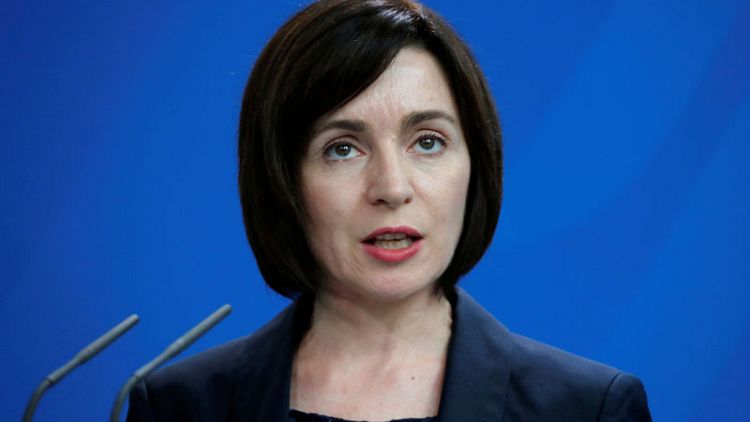By Andreas Rinke
BERLIN (Reuters) - Moldova's new government has a window of opportunity to build a functioning state free of the oligarchic systems that have blighted it in the years since independence, in 1991, Prime Minister Maia Sandu told Reuters.
Moldova, sandwiched between Romania and Ukraine, is one of Europe's poorest countries. The former Soviet republic of 3.5 million people has long been on the front lines of geopolitical rivalry between the European Union and Russia.
But in a rare example of agreement between them, Brussels and Moscow both backed the formation of Sandu's new government. She was seen as a last-ditch effort to free the country from the influence of oligarch Vladimir Plahotniuc, accused of using political influence for personal gain, a charge he denies.
Sandu, a former World Bank economist, warned that geopolitical rivalry was often used as a rhetorical tool by people with a different agenda, while acknowledging that Moldova divided between Romanian and Russian speakers and between proponents of closer ties with Moscow or with Brussels.
"What I'm trying to avoid is letting these corrupt politicians use this geopolitical discourse to hide their bad governance in Moldova," she told Reuters during a visit to Berlin, where she held talks with Chancellor Angela Merkel.
"We have had governments that called themselves pro-European and governments which were pro-Russian, but they were all governing the country badly, which led to corruption, poverty and migration," she added.
Moldova became notorious in 2014 for a scheme that saw around a billion dollars in bank deposits spirited out of the country, apparently with official connivance, in a fraud estimated to have cost some 12% of its economic output.
"The first issue on the agenda is the 'de-oligarchisation' of the state," she said. "We had a regime in the past that captured state institutions, and we are now in the process of making these institutions independent.
"We want to have the chance to build a proper state ... to make the process irreversible," she said. International help, including the 4.5 million euros in aid that Brussels released after the change of government, will help.
She said the aim of the coalition she leads between the Moscow-leaning Socialists and her pro-European bloc was to last a full four years in government -- but next year's presidential elections, in which the two sides face off, will be a challenge, she added.
(Writing by Thomas Escritt)
